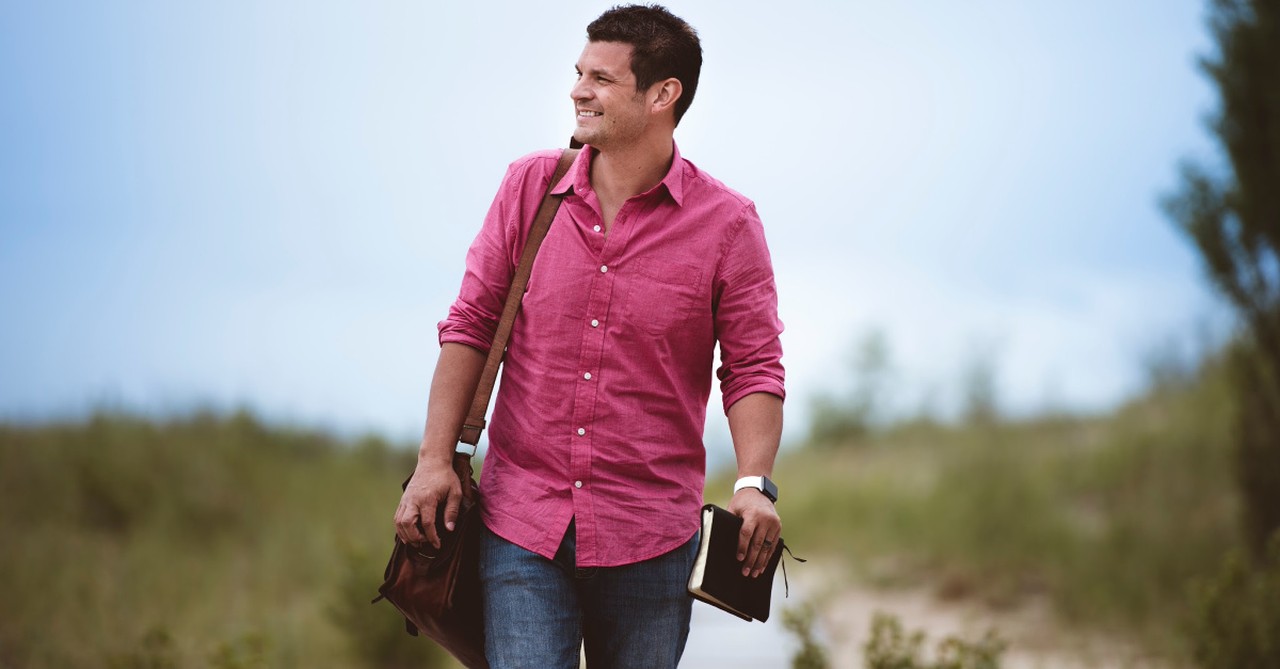9 Biblical Reasons to Feel Great about Taking Care of Yourself

If you’re anything like me, you’ve grown up on ideals of hard work, self-sacrifice, and productivity. And while these things have worth, sometimes they can lead to burnout and exhaustion.
Unfortunately, I’ve found that depriving oneself, overcommitting, and neglecting personal needs has become almost a badge of honor among Christians.
As young singles, it’s often assumed that we have extensive amounts of time on our hands that married couples or parents don’t.
Because of this, especially when I was in college, assumptions were made that my friends and I had plenty of time and energy to give to every project, chapel service, or ministry. If we didn’t participate, we were often met with scorn or judgment.
In the push to serve the kingdom, accomplish, and take care of others, we as Christians frequently forget to offer grace to ourselves.
What happens when you push yourself past your limits? And does the Bible really ask us to run ourselves into the ground?
Below, we’ll explore 9 biblical reasons to take care of yourself.
Photo Credit: ©Getty Images/Aaron Amat
1. God Cares about You

1. God Cares about You
SLIDE 1 OF 5
This may seem obvious, but I want us to really consider it for a moment.
God cares for us, enough to die for us. He designed us specifically because he wanted us. He created a world that provides for our needs.
When we’re in need, we pray to Him, and he listens. He calls us precious sons and daughter. He is there before we even know what to us for.
So if God wants to take care of us, why do we think that we shouldn’t take care of ourselves?
I tend to feel guilty about taking care of myself, even though I’m more than willing to accept that God cares for us. Matthew 6:26 says, “Look at the birds of the air; they do not sow or reap or store away in barns, and yet your heavenly Father feeds them. Are you not much more valuable than they?”
If God takes care of the birds and feeds them, why wouldn’t he want us also to be fed, spiritually, mentally, emotionally, and physically?
2. God Himself Rested
Genesis 1-2 recounts the story of creation. God spent six days creating the earth. Then, Genesis 2:2 says, “By the seventh day God had finished the work he had been doing; so on the seventh day he rested from all his work.”
Of course God wasn’t tired. But he was trying to communicate to us about our value and about trusting in him.
If the Lord of all the heavens in His infinite power is allowed to rest, don’t finite humans need it as well?
So in case no one else tells you today, you are allowed to rest! It is spiritually good for you to do so.
Photo Credit: ©Ben White/Unsplash
3. Jesus Took Time Alone

3. Jesus Took Time Alone
SLIDE 2 OF 5
Jesus’ ministry only lasted three years. It might seem that he would spend every second teaching and working miracles. However, Jesus lived a life of balance.
Luke 5:16 says, “But Jesus often withdrew to lonely places and prayed.”
Jesus recharged his spiritual batteries.
He also took care of his body. The Bible records that Jesus took time to sleep, even in the middle of a storm (Mark 4:37-39).
Since we are to follow Jesus’ example, as the only perfect person to walk the earth, it is only appropriate to also take time alone in prayer and rest our bodies.
4. God Placed Adam and Eve in the Garden of Eden
In the beginning, when the world was “very good,” God placed Adam and Eve in a garden that provided perfectly for their needs (Genesis 2:8-9).
They were instructed to rule the land, but it was implied that though they would indeed be engaged in actively tending and governing, struggling against thistles and thorns didn’t come until after the Fall (Genesis 3:17-19).
God’s design in perfection wasn’t for struggle and suffering. he didn’t hand everything to Adam and Eve on a golden platter, but he provided everything in the garden they would need to take care of themselves.
It follows that his intention is for our needs to be met as well. Though suffering and struggle are inevitable because of the Fall, and sometimes we need to give up comfort in order to do the right thing, God’s intent is for us to be cared for.
Photo Credit: ©GettyImages/kieferpix
5. God Mandated Rest

5. God Mandated Rest
SLIDE 3 OF 5
If God’s intention wasn’t clear from creation, he mandated rest in the Ten Commandments. Exodus 20:8-10 says, “Remember the Sabbath day by keeping it holy. Six days you shall labor and do all your work, but the seventh day is a sabbath to the Lord your God. On it you shall not do any work.”
God sets this example and command for us so that we can be reminded of the bigger picture—that not only are we allowed to rest from our work, that God wants us to have rest as our entire worldview. Resting in his love, resting in his power, every second of every day.
God knew our bodies and minds need practical rest, so he built in a cycle of work and rest for his people.
6. The Bible Calls Our Bodies His Temple
1 Corinthians 6:19-20 tells us, “Do you not know that your bodies are temples of the Holy Spirit, who is in you, whom you have received from God? You are not your own; you were bought at a price. Therefore honor God with your bodies.”
It’s important to note that these verses are used in the context of sexual immorality. However, it emphasizes the point that our bodies are important as well as our souls.
Remember in Exodus and Leviticus, how God designs what he wants his temple to be like, in almost ridiculous detail? The colors of string, the size of the cherubs, the purpose of each section. That is how much he cares about your body, too.
As we make sure to serve God, stay in the Word, and serve others, we must not forget to care for our bodies as well.
Photo Credit: ©Getty Images/Yolya
7. Jesus Performed Miracles to Care for People’s Physical Needs

7. Jesus Performed Miracles to Care for People’s Physical Needs
SLIDE 4 OF 5
Jesus died on the cross to forgive sins, and he offered forgiveness to many he encountered. However, the vast majority of his recorded miracles while he was on earth were to tend to people’s physical needs—healing, giving sight to the blind, even feeding the masses.
Matthew 15:32 records, “Jesus called his disciples to him and said, ‘I have compassion for these people; they have already been with me three days and have nothing to eat. I do not want to send them away hungry, or they may collapse on the way.’”
Jesus then proceeded to perform the miracle of feeding the four thousand. Jesus performed a massive miracle in order to provide the people with a meal.
8. God Sent an Angel to Make Elijah Take Care of Himself
After Elijah’s big faceoff with the prophets of Baal in 1 Kings 18, during which God sent flames from heaven to display his power, Elijah had what can only be described as a meltdown.
1 Kings 19:4-5 records, “He came to a broom bush, sat down under it and prayed that he might die. ‘I have had enough, Lord,’ he said. ‘Take my life; I am no better than my ancestors.’ Then he lay down under the bush and fell asleep.”
Instead of yelling at Elijah to get his act together, God sent an angel, who awakened Elijah and gave him bread and water. Elijah slept again, received bread and water a second time, and then set out.
Essentially, God gave Elijah a snack and told him to take a nap. God is well aware of our physical needs and our limits as finite beings.
Photo Credit: ©Sparrowstock
9. God Gave Us Other People to Live in Community

9. God Gave Us Other People to Live in Community
SLIDE 5 OF 5
In the beginning, God said, “It is not good for the man to be alone. I will make a helper suitable for him” (Genesis 2:18). From the very first person, God intended for mankind not to be alone.
Note that God wanted a helper for Adam. We are to help one another. If you find yourself giving, sacrificing, and working without rest, God gave us community to be able to find help. In trying times, it’s okay to seek out help, whether emotional, spiritual, or physical support.
God didn’t design us for laziness and self-indulgence.
Though the Bible gives many practical examples of self-care, this doesn’t mean that we should expect life handed to us or neglect to care for others.
Mottos like “treat yourself” and “you deserve it” can lead to self-indulgence and selfishness.
Instead, think of self-care as stewardship. We have been given our bodies, minds, and souls to glorify God. In order to do so well, we need to see to their upkeep, so they stay running in tip-top shape, like a car that needs regular oil changes and new air in the tires.
Self-care isn’t just about relaxing, just about sleep, or just about tending to our physical bodies, either.
Self-care involves tending to our spiritual needs through time alone with God, praying and in the Word.
It involves tending to our emotional needs through finding ways to decrease stress, enjoy simple pleasures, and talk out our feelings if needed.
Caring for ourselves includes recharging mentally, or alternatively, challenging our brains to keep them sharp.
Finally, caring for ourselves does include our physical wellbeing, including sleep, exercise, healthy eating, hydration, and hygiene.
Our bodies, minds, and souls are a gift. When we steward them well, treating them with respect and using them in a way that honors God, we bring glory to our Heavenly Father.
Photo Credit: ©GettyImages/Shironosov

Originally published January 12, 2021.







